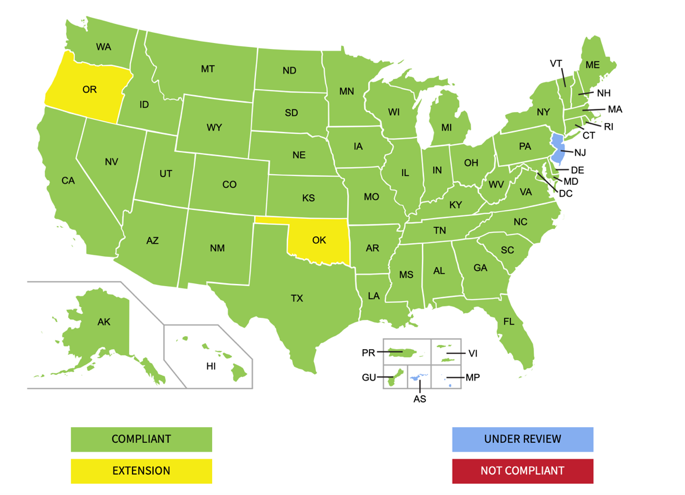On Thursday, March 26, Acting Secretary of Homeland Security Chad Wolf announced a one-year extension of the Real ID enforcement deadline from October 1, 2020 to October 1, 2021. The extension was issued in the wake of temporary closures of many state DMVs amid the COVID-19 pandemic and resulting social distancing measures, preventing many Americans from applying for and receiving new compliant forms of identification. This action preempts a similar extension soon to be enacted by Congress as sec. 16006 of the COVID-19 response package passed by the Senate yesterday and up for a vote in the House as soon as today.
In response to recommendations issued by the 9/11 Commission in 2004 (see p. 390 here), Congress passed The Real ID Act in 2005 to establish a set of minimum security standards for all state-issued forms of identification. Individuals with non-compliant IDs will not be allowed to access Federal facilities, board commercial aircraft, or enter nuclear power plants. Originally set to take effect in mid-2008, the enforcement deadline has been extended several times amid slow adoption and pushback from states over privacy, cost, and logistical concerns. The enforcement deadline applies both to states, who must be issuing compliant IDs or licenses by October 2021, as well as individuals, who must have compliant IDs to board aircraft or enter Federal facilities.

Current Status of Real ID Compliance by State and Territory
Source: Department of Homeland Security
As of March 2020, all states and territories except Oklahoma, Oregon, New Jersey, American Samoa, and the Northern Mariana Islands – who have either received extensions or are under review – are Real ID compliant. Despite compliance on behalf of most states, a survey from the U.S. Travel Association in September 2019 found that nearly 60% of Americans did not have a Real ID nor an accepted alternative (i.e. a passport), and 57% were unaware that only Real ID compliant driver’s licenses would be accepted for commercial air travel in October 2020. While the enforcement delay is aimed at curbing the spread of COVID-19 and providing flexibility amid social distancing measures, it will also provide the public yet another year to become aware of the new requirements and renew their IDs.




